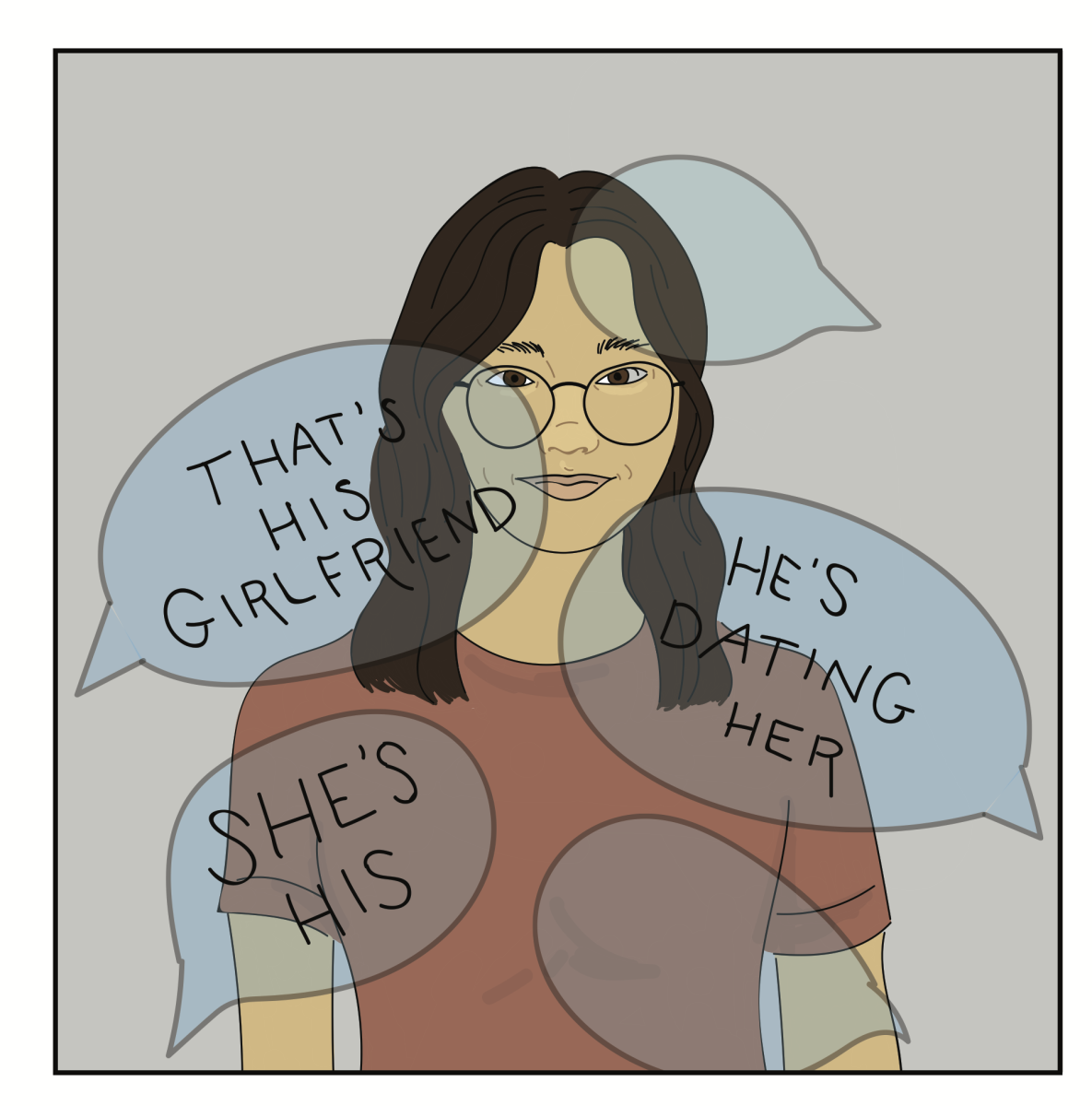Stop defining women by their relationships
My name is Emily Graham.
It’s not a very unique name. In the 1990s, Emily was the number three most popular girls’ name in the U.S., making it to the top position from 1996 to 2003. That makes it highly probable that Emily is one of the most common female name on campus.
So why then do people seem to frequently forget my name, opting to call me so-and-so’s girlfriend instead?
On many occasions, when I am with my significant other around campus, I receive greetings such as, “Hi, so-and-so’s girlfriend,” or, “Hey, is that your girlfriend?”
It’s one thing for someone meeting me for the first time not to know my name and find some other way to identify me. However, the polite follow-up would be to ask my name rather than continue to refer to me in some form of the possessive.

These scenarios play out in one of two ways. First, the person ignores my existence, directing the question, “Is that your girlfriend?” to the man beside me then moving on to a new topic.
Second, the person knowingly refers to me as The Girlfriend—whether they know my real name or not—as some kind of joke.
Whether the joke is on me or him is unclear, but the insult definitely hits me harder.
I often wonder why so many people ignore the fact that I have a name that is objectively easy to remember. Most of the time, I do not believe their intentions are malicious. However, the painful and regressive consequences are what matter.
We talk about the patriarchy frequently in terms of political power, the wage gap and maternity leave. But the harm of patriarchal values plays out in everyday interactions that many of us might not even notice.
This phenomenon is sometimes known as microaggression, or the subtle “slights, snubs or insults, whether intentional or unintentional, which communicate hostile, derogatory or negative messages” to members of marginalized groups, according to Psychology Today.
Microaggressions can take on many forms, including snide comments that reduce women to nothing more than someone’s girlfriend.
Just because this form of sexism is happening on a smaller scale than issues like inequality in the fields of science, technology, engineering and mathematics (STEM) or sexual harassment in the workplace, they still have detrimental effects on women and society as a whole.
Historically, women have been viewed and treated like property. The expectation that women live to serve as wives, mothers and homemakers is not a dying notion.
Because of commonplace expressions like, “Trophy Wife” and “Wife me up,” and commercials that equate women to beer or cars, the objectification of women is not only alive, but it is normalized in our language and media.
When people call me so-and-so’s girlfriend, they most likely do not see it as an act of aggression, micro or otherwise, just as women who post a photo of their homemade dinner with the caption, “Wife me up” don’t realize they may be perpetuating restrictive stereotypes about the role of women.
A woman should be able to be a good cook, keep their living space clean and wear traditionally feminine clothing without being labeled a “good” wife or girlfriend. And a woman who doesn’t do all of those things should not be labeled a “bad” wife or girlfriend. The point is that not everything a woman does is related to her relationship to a man if she is straight.
Too often we only talk about women in association with men. There is something wrong with a woman if she is not seen as desirable by men. And as women, we often think of ourselves positively or negatively in terms that reflect what we see as antiquated gender roles.
Just as a girlfriend is not a trophy, a boyfriend is not a marker of success as a woman. Being in a relationship does not mean each person is defined in relation to the other. It is partnership, companionship, friendship and more.
It is all the more hurtful to experience these microaggressions from another woman. I have seen women act out against each other over a man. I have been told to my face by a friend that spending time with my significant other makes her jealous. I have been called “The Girlfriend” by other women who do in fact know my name.
I am not blaming women for their own mistreatment, but I am asking them to be more aware of what’s going on.
Sexist microaggressions are so common because they are normalized. We don’t even realize when they are hurtful and dehumanizing, especially when they are so ingrained in everyday culture.
While microaggressions can be difficult to identify, they can be easy to solve once we become aware of them. At an individual level, we can stop defining women by their relationships to men and start recognizing them as human beings regardless of their gender.
I am a junior communication studies major, on track for a Spanish double major and an English minor. I am a tutor in the Writing Center. I am the Copy Chief of The Hawk newspaper.
I have become all of these things without the help of a man.
I am Emily Graham.

















































